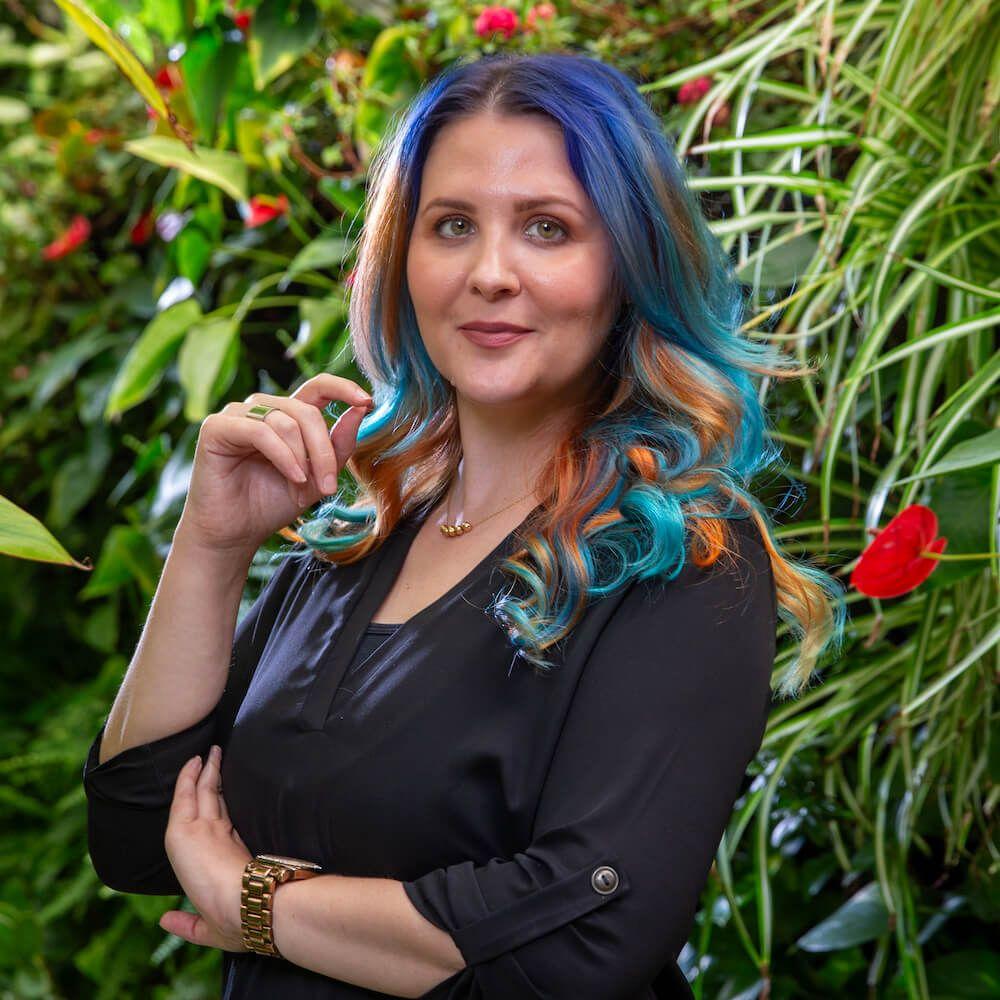Pioneering the Green Frontier
Amidst the looming climate crisis, two innovative companies have launched creative climate solutions, adapting blockchain technology and facilitating resource sharing to ensure a green transition.
Earth is a planet of overwhelming resources.
Each year, the world’s population generates an astounding 2.2 billion tonnes of waste, all headed for landfills. Underutilised and poorly managed energy systems have created scarcity and rising utility costs. In the UK, for instance, enough renewable energy to power 800,000 homes was lost to grid instability.
Cultural resistance to new technologies and the perceived expense of sustainable transitions often pose a roadblock to change. A prevalent misconception is that green solutions are less effective than their conventional counterparts, a myth that often discourages companies from embracing sustainability.
In order to address the dichotomy between assuring humanity’s survival and, let’s face it, our comfort, with the need to temper our impact on the planet, modern industries must help to create more balanced systems. Today, two pioneering companies are addressing these issues: The Surpluss and Powerledger.
Getting it Done
The climate crisis encompasses a multitude of challenges. Powerledger and The Surpluss might be tackling disparate facets of climate change, but their overarching goals are the same–enabling a greener, more sustainable future.
A ground-breaking digital platform, The Surpluss, is rewriting the rules of resource management and waste disposal. Founded by Rana Hajirasouli, The Surpluss seeks to foster "synergies" and promote sustainable choices, focusing on small and medium-sized enterprises (SMEs) in the United Arab Emirates.
At its core, The Surpluss endeavours to redefine our perception of waste, "We want people to understand that waste comes in many forms. Every day, we waste space; every day, we waste time; every day, we waste stuff,” Rana says. “The difference between what is waste is deeply ideological. It just takes one second to say, 'What if that's not waste? What if someone else can actually use that?'”
“The difference between what is waste is deeply ideological. It just takes one second to say, 'What if that's not waste? What if someone else can actually use that?'”
The Surpluss platform operates on a simple yet profound idea - facilitating the exchange of resources among diverse companies. It classifies resources into four vital categories: knowledge, by-products, waste, and surplus, allowing companies to seamlessly buy, sell, or share items that typically end up as waste.
On the energy front, Dr Jemma Green and John Bulich co-founded Powerledger, a company revolutionising the energy sector through cutting-edge blockchain technology.
As humanity decreases its reliance on fossil fuels, alternative energy sources become increasingly crucial. However, without effective energy systems to support that transition, costs rise, and renewable energy loses its appeal to consumers.
More than just a method for transferring crypto-currency, Powerledger has redirected blockchain technology toward renewable energy, creating “software solutions for utilities and energy companies who want to innovate and make exciting products that relate to the energy transition,” Dr Jemma Green explains. Powerledger's platform not only tracks the provenance of renewable energy but also empowers users to share surplus energy and curate their energy sources.
Start Small, Start in Your Community
The first step in solving a crisis, especially one as overwhelming as climate change, rarely starts at the global level; rather, impactful ideas usually start small – regional, community-driven, ingenious solutions that arise from the most unlikely places.
“I fell in love with the problem,” Rana says, elaborating on her inspiration to create The Surpluss. “And without weirding you out too much, slime mould.”
Despite their unappealing name, slime moulds have the ability to map out the best route to food. Multiple studies have demonstrated that this colourful single-celled organism’s interconnected pathways across a forest floor mimic some of the world’s most efficient transport systems.
During lockdown, Rana stayed with her mother and became obsessed with slime mould networks. “I started zooming in on how slime mould functions; what else can slime mould do? I started thinking about this in a business context.” From this perspective, The Surpluss is not merely a platform; it is a collaborative ecosystem that encourages the reevaluation of resources and promotes sustainable choices. “I found it really interesting to translate this over to businesses,” she says, explaining its remarkable applications in SME resource sharing.
Applying her knowledge of biomimicry and her earlier experiments in slime mould, Rana and her team designed The Surpluss to assist SMEs in mapping out their underutilised resources. This first step in onboarding a new Surpluss client allows companies to realise value where previously, they only saw trash. For instance, “they might have amazing expert knowledge, such as a health and safety expert who could offer consultations to a neighbour down the road, or perhaps they have idle assets or machinery surplus and excess products,” Rana lists.
Powerledger’s origins, on the other hand, were the result of a happy accident. An experienced sustainability consultant, Dr Green’s background in fintech and green energy led her to an Australian eco-village and their struggling solar storage grid. "I wanted to create the ability to share electricity,” she says.
At the time of Powerledger’s genesis, though, Dr Green was on maternity leave, spending time at home with her new baby, when a friend introduced her to John Bulich, who was setting up a new blockchain enterprise. “I called up my mom and said, ‘Could you come over and hold my baby’, who was seven weeks old at the time. We started to look at whether blockchain could enable energy tracking that would allow the trading and settlement of energy.”
Dr Green is passionate about blockchain technology – our interview covers the intricate complexities of NFTs, functionality, and even transaction processing speeds. For Dr Green, the efficiency offered by Blockchain has the potential to revolutionise community and global energy sharing.
A Path Towards Resource Equity
Powerledger has now settled inside of European borders, where changing import laws means tracking and recording the sources of energy transfers will become crucial in the future.
The company has built a unique capacity for transparency within its systems, empowering consumers to make informed energy choices with a programme known as ‘Choose Your Mix.’ “When using our platform, customers can select up to 70% of their energy's exact sources – 10% solar from this solar farm and 15% wind from that wind farm. We measure how much electricity the solar farm generates, how much electricity the customer consumes at that moment, match the data, and record it on the blockchain,” Jemma says.
The potential of Powerledger extends far beyond individual choices. Dr. Green adds, "Another example is an energy community product we developed for an Austrian utility. They want to enable energy sharing among their customers. Some have solar, some don't, some have batteries, some don't. Those without renewable energy options can purchase from those who have excess. It's a brilliant energy-sharing concept."
Blockchain offers another perk beyond lightning-fast transfers and energy tracking – it is also shockingly cost-effective. The use of blockchain promises the ability to keep energy costs low for users, reducing the financial barrier to adopting renewable energy sources.
Looking outside the energy world, The Surpluss works with multiple industries in the United Arab Emirates. A vocal believer in small businesses and their impact, Rana lists the challenges facing many SMEs today: resource restrictions, financial issues, and talent shortages. “It's important that when we're talking about climate, we zoom in on who gets access to what resources and when,” she explains.
“Our platform helps companies reduce emissions through local sourcing and collaborating with companies nearby. Bringing down their overheads when it comes to energy output, for example, by sharing the warehouse space, ultimately using less but creating more value and utility from what they already have.”
With The Surpluss, companies can categorise and post their additional resources, creating what Rana calls ‘synergies’. “We’re a sustainability exchange, not a marketplace,” Rana points out. When The Surpluss goes into boardrooms and onboards a new client, their main goal is to educate and assist. Companies are sometimes hesitant at the unfamiliar idea of resource sharing, questioning whether it has the potential to provide a return on their investment.
“A lot of our work has been bridging that awareness,” Rana shares. “And going against the myth that sustainability is expensive. We want to show them that it can pay straight off the bat.”
Radical Collaboration and Resource Sharing
The Surpluss initially launched in October 2022. Since then, it’s grown from 500 companies to 2,500, though Rana and her team have set even higher targets for themselves over the next few years, especially as they’ve just announced their expansion into the UK. They’re also on track for B-Corp certification, becoming one of the first companies in the UAE to achieve the distinction.
Today, The Surpluss works with construction companies, manufacturers, textile companies and grocers around the UAE.
In response to the question of her proudest moment for The Surpluss so far, Rana has a ready answer. “Last year, there was a really cool synergy that we helped facilitate between a social enterprise and a grocer. We fed about 24,000 workers that were between jobs; 24,000 meals made in just one month.”
“Trust,” Dr Green says simply. “Trust is really important in this era of energy transition.”
For Dr Green, Powerledger’s blockchain technology remains a source of unparalleled transformation and invention, “Having a public blockchain that's designed for the electricity sector, that's also highly performant and cheap, I think, is going to unlock a lot of innovation that we haven't yet contemplated.”
Now an award-winning platform, Powerledger cloned the Solana blockchain in May 2022, a highly efficient, inexpensive protocol with the ability to process 50,000 transactions a second. By adapting blockchain technology to electricity use, Powerledger has created an entirely new way to consume renewable energy. “Especially where tracking the provenance and validating the authenticity of energy claims is becoming incredibly important.” The blockchain was made public in August 2023, meaning companies with energy solutions can now add a low-cost, low-energy blockchain element to their product offering.
In a world grappling with the urgency of climate change, the role of technology in fostering a transition to a more renewable future is undeniable.
Collaboration and novel approaches to eco-friendly practices have become central to corporate sustainability efforts. “Trust,” Dr Green says simply. “Trust is really important in this era of energy transition.”
And the benefits of extending that trust throughout industries impact us all.
“Businesses are constantly afraid of failing,” Rana says. “But what I found was that in dissecting this idea of failure, it wasn't such a bad thing. If we harness the power of collective intelligence, businesses can make smarter decisions faster.”
Most Popular
The Climate Tribe delivers stories about Biodiversity and Conservation, Circular Economy, Food and Water , and how they intersect with climate.
Subscribe
Get the latest stories inspiring climate action around the globe straight to your inbox.





